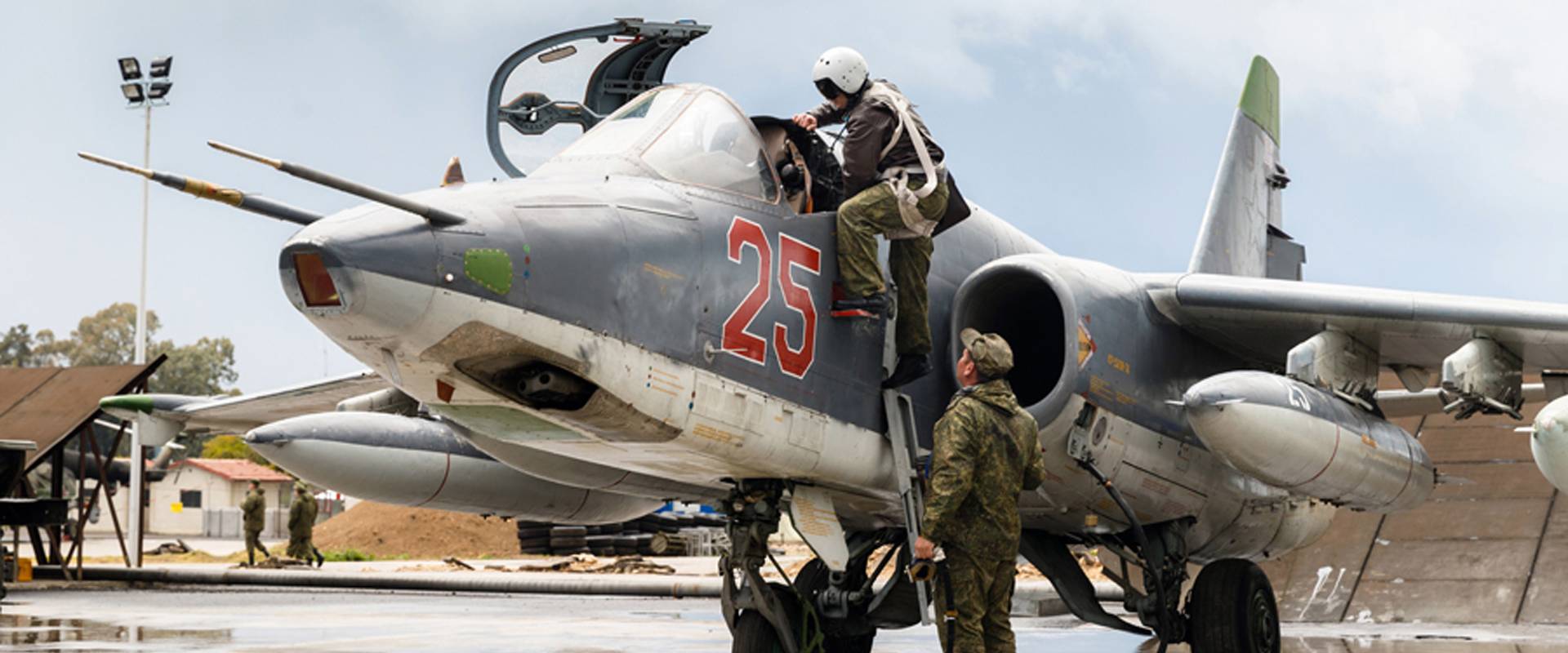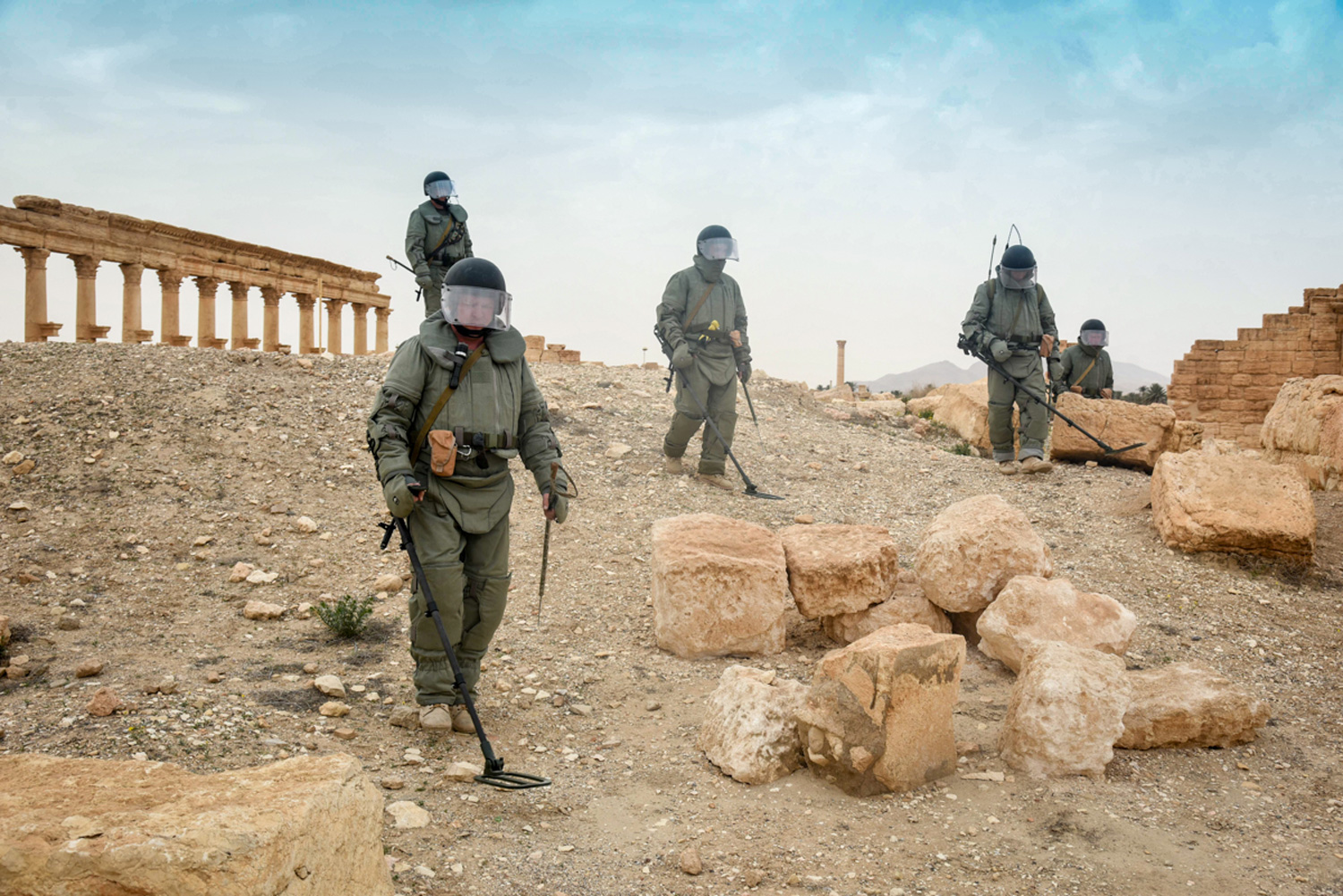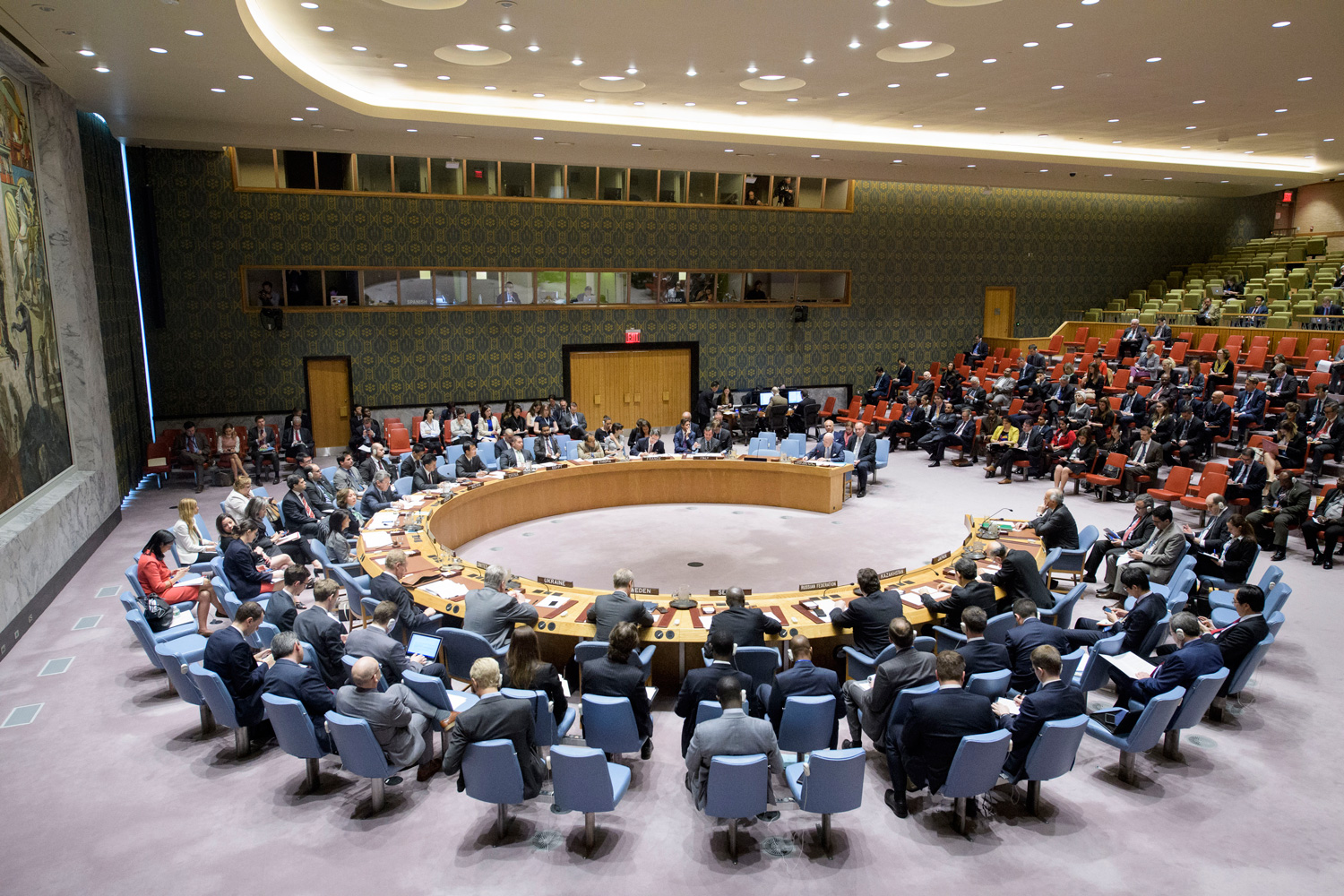Once perceived as a mere spoiler, Russia has become an agenda-setting power in the Middle East. Now that the US have pulled out politically, expectations are even higher. Can the Russians handle them?
It’s a questionable trend, a dubious fashion: more and more foreign powers are sending armed forces to the Middle East, seemingly without wasting even a moment’s thought on exit strategies. Where does this faith in the luck of the brave come from? The belief that their army generals will straighten things out? Or do they simply hope for a game-changer, a deus ex machina, which as in ancient theatre would suddenly though not unexpectedly arrive with a solution.
Suspicions that Russia intervened in Syria without an exit strategy have hardened. Afterall, the Russians had to act fast. They had quite rightly warned Western nations about such adventures and had insisted on keeping one’s goal in mind. Now they seem to be hoping for their stroke of luck in Syria. Russia is well aware that a short-term stabilisation of the regime wouldn’t amount to much. That even a victory over Daesh in Raqqa wouldn’t spell the end of the Syrian War, as it would unleash a number of new conflicts.
Putin’s dragomans, the Kremlin’s ambassadors well-versed in oriental languages, put on a show of self-confidence. Unlike the West, Russia’s conduct in the Middle East is designed to be perceived by others as it likes to see itself: as pragmatic, cool, cruel when necessary, but above all as acting strategically and according to self-interest.
But if there’s one thing the Russians know all about, it’s the construction of an overall narrative: every improvisation, every short-term reaction, every inadequacy that is rectified, everything is retrospectively made to look like it forms a part of a broader whole, a coherent strategy. A strategy that only becomes visible when it’s too late for the opponent. When Russian victory assured. Like a battleship suddenly emerging from the fog behind the adversary.
Until 2015, most Western diplomats and experts attributed to Russia neither the courage to take risks nor the will to take a leading role. They were content to see them as the mere ‘spoilers’ of others’ plans.
But since then the Kremlin has become a dominant power in the Middle East, investing a great deal for the sake of its relations. This isn’t only due to Putin’s decision to make the Middle East the focal point for the projection of power. Its role has also increased because other competing actors have either neutralised one another or, as with the United States, simply pulled out politically.
It looks like Moscow is serious about finding a political solution in Syria. But on what conditions is another question. Apparently, the Russians doubt the Assad regime’s prospects of re-establishing the power structures in place prior to 2011. It is quite clear to the Kremlin that Syria and its people have changed so much in the meantime.
Protection for the regime – and others
Regardless, Bashar al-Assad owes a great deal to the Russians, who have –occasionally, at least – protected the regime and staved off two major catastrophes. When the Russians set-up the Astana peace process, an attempt along with Turkey and Iran to agree on the terms of a ceasefire and guarantees, it sounded like a call for help from Moscow. It shows who they consider responsible, including themselves.
For as long as Russia’s strategy had been to foil the plans of others, it could easily be achieved. It was a zero-sum game. But Russia can no longer afford to act like that, in terms of both its own demands and how much it has already invested.
In spring 2016 Putin declared the mission in Syria successfully complete. But Russian armed forces remain on the ground in Syria, and now they have other challenges before them. And the stakes are higher.
At the time, Russia considered itself to have succeeded in preventing Islamist rebels and the foreign-backed opposition forces from overthrowing Assad. It boosted its local arms industry, fended off threats to its dominance over the natural gas export market, and was once again able to talk world politics with the USA on a level playing field. And all without having to concede any ground in Ukraine or Crimea, without significantly endangering Israel, and even without suffering heavy human or material loss.
We have to show that we can act unilaterally, in order to make future multilateral action possible – this is how Russian diplomats and experts presented their version of the story. But it is astonishing that the Russian leadership did not disclose two additional motives, although the history books will no doubt see them favourably.
In autumn 2015 Russia averted another humanitarian catastrophe: Salafist insurgents in Idlib and Hama provinces marched on the surroundings of Latakia, the heartland of Syria’s Alawite minority. Alawites, who are considered pro-regime infidels by many in the conflict, would have been given no quarter. At least that is what they feared, quite understandably. Thousands would have fled into Lebanon or over the Mediterranean. Alawite soldiers would have rushed from the fiercely contested Damascus area in order to defend their homes. Maybe too late, since the coastal Alawite villages were notoriously ill-protected. Sectarian revenge killings could have followed on all sides.
So, occasionally at least, Russia protected not only the regime. The intervention staved off an impending misery, but that doesn’t take away from Russia’s responsibility for other humanitarian catastrophes. Killing and displacement of civil population took place elsewhere with Russian consent or even active participation.
Russians also averted another confrontation which could have set ablaze the entire region in 2015. Because otherwise, the Iranians would have stepped in, this time officially. The Islamic Republic would no longer have limited its engagement to Shia volunteer brigades supervised by Iranian officers and advisors but deploy regular forces. This in turn would have forced Saudi Arabia to make a choice: either go to war with Iran, or stand there like a coward and throw away its role as the pre-eminent Sunni power.
This might explain Riyadh’s demure reaction to Moscow’s intervention. Indeed there is much to suggest that the Saudis even encouraged the Russians to intervene.
Now Russians have ‘West Asia’ – as they prefer to call the Middle East – literally around their neck. They are now engaging wherever they can: in Iraq, with the Kurds, the Gulf states, in Egypt, Libya, Algeria, and recently they have even begun to show renewed interest in Western Sahara.
Russia, a dominant power, must now make a strategic decision
Russia’s Middle East policy used to be determined by the strategic goal of keeping the price of oil above 50 dollars a barrel. But now the reality has become more complex. In some Middle Eastern states Russia is already perceived as a regional power there, one that unlike the USA came in order to stay. Turkey’s turn toward Russia also seems linked to this. Everyone is fighting for survival. That is easier to sort out with one’s immediate neighbours, who could cause greater trouble than a Trump on the other side of the Atlantic.
It is a historical irony that Trump’s conduct in the Middle East now resembles the way Russia used to behave: selling weapons and not lecturing other countries their record on human rights. Above all, the conviction that whoever considers the situation with nuance and tries to understand all the competing interests and anxieties at play has already lost. And if reality doesn’t quite fit, you adjust it with a necessary lie.
Russia, not only a dominant but agenda-setting power, has a difficult choice to make. It could force a changing of the guard in Syria, thereby initiating a transition that many armed insurgent groups cannot refuse. They want an end to the war just as much as the majority of the regime’s armed forces do. For this the Russians need that part of the population who want to maintain and change the Syrian state and who see no salvation in armed insurgency. The same people who dot not only long end to the war, but also for an end of the logic of self-destructive tyranny.
No one will succeed in maintaining the Syrian state if they acquiesce in the destruction of the majority of its institutions. That’s why Russia will soon have to decide either to help reshape Syria and take responsibility for the safety of the population, or to devise an exit strategy as soon as it can.
Daniel Gerlach is the editor-in-chief of zenith magazine.






